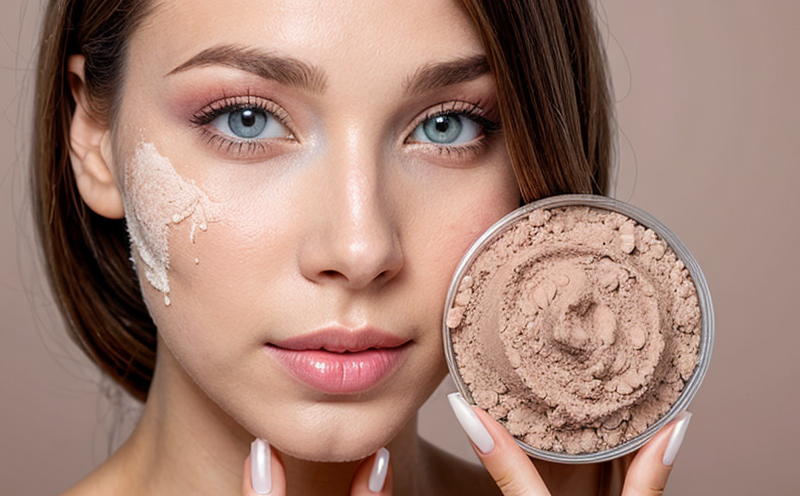Safety Assessment of Allergenic Cosmetic Preservatives
The safety assessment of allergenic cosmetic preservatives is a critical step in ensuring that beauty products are safe for consumer use. This service focuses on the identification and quantification of potential allergens within preservative systems used in cosmetics, such as parabens, formaldehyde releasers, and quats.
Preservatives play an essential role in preventing microbial growth and extending the shelf life of cosmetic formulations. However, certain preservatives have been identified as potential sensitizers or allergens, posing significant risks to consumers with sensitive skin or allergies. The safety assessment involves multiple steps, including the extraction of preservatives from the product matrix, identification using analytical techniques such as LC-MS/MS (Liquid Chromatography-Mass Spectrometry), and evaluation for their potential to induce allergic reactions.
The process typically begins with a detailed review of the cosmetic formula to identify all preservative components. Specimen preparation involves extraction methods tailored to the specific product type, ensuring that all preservatives are thoroughly removed from the formulation without altering their chemical structure or reactivity. Once extracted, these compounds undergo comprehensive analysis using high-performance liquid chromatography coupled with mass spectrometry (HPLC-MS/MS), which allows for precise quantification and identification of even trace amounts.
The test then evaluates whether identified preservatives can induce allergic responses through mechanisms like contact dermatitis or other sensitization pathways. This evaluation considers both local effects at the site of application and systemic reactions that may occur following dermal exposure. Regulatory guidelines from bodies such as the European Union's Cosmetics Regulation (EC 1272/2006) mandate stringent controls over allergens in cosmetics, emphasizing the need for thorough testing to protect public health.
Our laboratory adheres strictly to international standards like ISO 15194:2009 and EN 830-1:2013, ensuring that our methodologies are aligned with global best practices. By leveraging advanced analytical technologies and experienced scientific staff, we provide reliable data on allergenic potential that can inform product development decisions aimed at enhancing safety.
It's important to note that the selection of appropriate preservatives is crucial not only for maintaining product stability but also for avoiding adverse effects due to sensitization. Our team works closely with clients throughout the testing process, offering guidance based on our deep understanding of regulatory requirements and industry trends.
Why Choose This Test
- Evaluation of preservatives for their potential to cause allergic reactions
- Comprehensive compliance with international regulatory requirements
- Expert analysis using cutting-edge LC-MS/MS technology
- Detailed reporting tailored to meet specific client needs
The importance of this test cannot be overstated in today’s competitive market where consumer safety is paramount. By proactively addressing allergenic concerns early in the development process, manufacturers can avoid costly recalls and damage to brand reputation.
International Acceptance and Recognition
- The results of this test are accepted globally by regulatory bodies including the European Union, United States Food and Drug Administration (FDA), and others.
- Our laboratory has achieved ISO 17025 accreditation, ensuring high standards in testing and calibration processes.
This broad acceptance demonstrates our commitment to delivering accurate, reliable data that is trusted worldwide. Clients can be assured that their products will meet stringent international safety criteria without additional local validation efforts.
Competitive Advantage and Market Impact
Conducting thorough safety assessments of allergenic cosmetic preservatives offers significant competitive advantages in the market. It allows companies to differentiate themselves by offering safer, more trusted products that align with consumer preferences for healthier skincare options.
Moreover, compliance with stringent safety regulations can open doors to new markets, particularly those with strict import laws regarding cosmetics and personal care items. This ensures a broader customer base while maintaining high standards of quality and safety.





